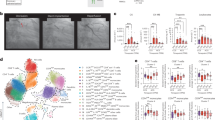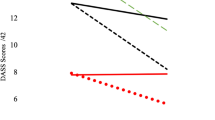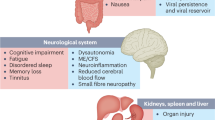Abstract
Pre-existing psychiatric disorders were linked to an increased susceptibility to COVID-19 during the initial outbreak of the pandemic, while evidence during Omicron prevalence is lacking. Leveraging data from two prospective cohorts in China, we identified incident Omicron infections between January 2023 and April 2023. Participants with a self-reported history or self-rated symptoms of depression or anxiety before the Omicron pandemic were considered the exposed group, whereas the others were considered unexposed. We employed multivariate logistic regression models to examine the association of pre-existing depression or anxiety with the risk of any or severe Omicron infection indexed by medical interventions or severe symptoms. Further, we stratified the analyses by polygenic risk scores (PRSs) for COVID-19 and repeated the analyses using the UK Biobank data. We included 10,802 individuals from the Chinese cohorts (mean age = 51.1 years, 45.6% male), among whom 7841 (72.6%) were identified as cases of Omicron infection. No association was found between any pre-existing depression or anxiety and the overall risk of Omicron infection (odds ratio [OR] =1.04, 95% confidence interval [CI] 0.95–1.14). However, positive associations were noted for severe Omicron infection, either as infections requiring medical interventions (1.26, 1.02–1.54) or with severe symptoms (≥3: 1.73, 1.51–1.97). We obtained comparable estimates when stratified by COVID-19 PRS level. Additionally, using clustering method, we identified eight distinct symptom patterns and found associations between pre-existing depression or anxiety and the patterns characterized by multiple or complex severe symptoms including cough and taste and smell decline (ORs = 1.42–2.35). The results of the UK Biobank analyses corroborated findings of the Chinese cohorts. In conclusion, pre-existing depression and anxiety was not associated with the risk of Omicron infection overall but an elevated risk of severe Omicron infection, supporting the continued efforts on monitoring and possible early intervention in this high-risk population during Omicron prevalence.
This is a preview of subscription content, access via your institution
Access options
Subscribe to this journal
Receive 12 print issues and online access
$259.00 per year
only $21.58 per issue
Buy this article
- Purchase on Springer Link
- Instant access to full article PDF
Prices may be subject to local taxes which are calculated during checkout


Similar content being viewed by others
Data availability
Data from the UK Biobank (http://www.ukbiobank.ac.uk/) are available to all researchers upon making an application. The validation study was conducted using the UK Biobank Resource under Application 54803 (approved on October 29, 2019).
Code availability
All codes associated with the current submission are available and can be requested by contacting the corresponding authors.
References
Yang H, Chen W, Hu Y, Chen Y, Zeng Y, Sun Y, et al. Pre-pandemic psychiatric disorders and risk of COVID-19: a UK Biobank cohort analysis. Lancet Healthy Longev. 2020;1:e69–79.
Chen W, Zeng Y, Suo C, Yang H, Chen Y, Hou C, et al. Genetic predispositions to psychiatric disorders and the risk of COVID-19. BMC Med. 2022;20:314.
Lee SW, Yang JM, Moon SY, Yoo IK, Ha EK, Kim SY, et al. Association between mental illness and COVID-19 susceptibility and clinical outcomes in South Korea: a nationwide cohort study. Lancet Psychiatry. 2020;7:1025–31.
Vai B, Mazza MG, Delli Colli C, Foiselle M, Allen B, Benedetti F, et al. Mental disorders and risk of COVID-19-related mortality, hospitalisation, and intensive care unit admission: a systematic review and meta-analysis. Lancet Psychiatry. 2021;8:797–812.
Jansen van Vuren E, Steyn SF, Brink CB, Möller M, Viljoen FP, Harvey BH. The neuropsychiatric manifestations of COVID-19: Interactions with psychiatric illness and pharmacological treatment. Biomed Pharmacother. 2021;135:111200.
Nudel R, Wang Y, Appadurai V, Schork AJ, Buil A, Agerbo E, et al. A large-scale genomic investigation of susceptibility to infection and its association with mental disorders in the Danish population. Transl Psychiatry. 2019;9:283.
Arabi M, Al-Najjar Y, Mhaimeed N, Salameh MA, Paul P, AlAnni J, et al. Severity of the Omicron SARS-CoV-2 variant compared with the previous lineages: a systematic review. J Cell Mol Med. 2023;27:1443–64.
Goldberg EE, Lin Q, Romero-Severson EO, Ke R. Swift and extensive Omicron outbreak in China after sudden exit from ‘zero-COVID’ policy. Nat Commun. 2023;14:3888.
Pairo-Castineira E, Clohisey S, Klaric L, Bretherick AD, Rawlik K, Pasko D, et al. Genetic mechanisms of critical illness in COVID-19. Nature. 2021;591:92–8.
COVID-19 Host Genetics Initiative. Mapping the human genetic architecture of COVID-19. Nature 2021;600:472–7.
Feng Z, Ren X, Duren Z, Wang Y. Human genetic variants associated with COVID-19 severity are enriched in immune and epithelium regulatory networks. Phenomics. 2022;2:389–403.
Kousathanas A, Pairo-Castineira E, Rawlik K, Stuckey A, Odhams CA, Walker S, et al. Whole-genome sequencing reveals host factors underlying critical COVID-19. Nature. 2022;607:97–103.
Yang Y, Yuan M, Zeng Y, Xie Y, Xu Y, Liao D, et al. Cohort profile: the China Severe Trauma Cohort (CSTC). J Epidemiol. 2024;34:41–50.
Yang L, Chen W, Chen D, He J, Wang J, Qu Y, et al. Cohort profile: the China surgery and anesthesia cohort (CSAC). Eur J Epidemiol. 2024;39:207–18.
Wang W, Bian Q, Zhao Y, Li X, Wang W, Du J, et al. Reliability and validity of the Chinese version of the Patient Health Questionnaire (PHQ-9) in the general population. Gen Hosp Psychiatry. 2014;36:539–44.
Tong X, An D, McGonigal A, Park S-P, Zhou D. Validation of the Generalized Anxiety Disorder-7 (GAD-7) among Chinese people with epilepsy. Epilepsy Res. 2016;120:31–6.
Wang S, Niu P, Su Q, He X, Tang J, Wang J, et al. Genomic Surveillance for SARS-CoV-2 - China, September 26, 2022 to January 29, 2023. China CDC Wkly. 2023;5:143–51.
Sudlow C, Gallacher J, Allen N, Beral V, Burton P, Danesh J, et al. UK biobank: an open access resource for identifying the causes of a wide range of complex diseases of middle and old age. PLoS Med. 2015;12:e1001779.
UK Biobnak. Mental health web-based questionnaire. 2017. https://biobank.ctsu.ox.ac.uk/crystal/refer.cgi?id=22. Accessed 5 Apr 2023.
Moriarty AS, Gilbody S, McMillan D, Man ea L. Screening and case finding for major depressive disorder using the Patient Health Questionnaire (PHQ-9): a meta-analysis. Gen Hosp Psychiatry. 2015;37:567–76.
Spitzer RL, Kroenke K, Williams JBW, Löwe B. A brief measure for assessing generalized anxiety disorder: the GAD-7. Arch Intern Med. 2006;166:1092–7.
Nahum M, Van Vleet TM, Sohal VS, Mirzabekov JJ, Rao VR, Wallace DL, et al. Immediate mood scaler: tracking symptoms of depression and anxiety using a novel mobile mood scale. JMIR mHealth uHealth. 2017;5:e6544.
The COVID-19 Host Genetics Initiative, Andrea Ganna. A second update on mapping the human genetic architecture of COVID-19. medRxiv. 2022:2022.12.24.22283874.
Mak TSH, Porsch RM, Choi SW, Zhou X, Sham PC. Polygenic scores via penalized regression on summary statistics. Genet Epidemiol. 2017;41:469–80.
WHO. Historical working definitions and primary actions for SARS-CoV-2 variants. 2023. https://www.who.int/publications/m/item/historical-working-definitions-and-primary-actions-for-sars-cov-2-variants. Accessed 5 Apr 2023.
Allaoui M, Kherfi ML, Cheriet A. Considerably improving clustering algorithms using UMAP dimensionality reduction technique: a comparative study. In: El Moataz A, Mammass D, Mansouri A, Nouboud F, editors. Image and signal processing; 2020; Cham: Springer International Publishing; 2020. p. 317–25.
Whitaker M, Elliott J, Bodinier B, Barclay W, Ward H, Cooke G, et al. Variant-specific symptoms of COVID-19 in a study of 1,542,510 adults in England. Nat Commun. 2022;13:6856.
Giannakopoulou O, Lin K, Meng X, Su MH, Kuo PH, Peterson RE, et al. The genetic architecture of depression in individuals of East Asian ancestry: a genome-wide association study. JAMA Psychiatry. 2021;78:1258–69.
Wray NR, Ripke S, Mattheisen M, Trzaskowski M, Byrne EM, Abdellaoui A, et al. Genome-wide association analyses identify 44 risk variants and refine the genetic architecture of major depression. Nat Genet. 2018;50:668–81.
e Silva NML, Barros-Aragão FG, De Felice FG, Ferreira ST. Inflammation at the crossroads of COVID-19, cognitive deficits and depression. Neuropharmacology. 2022;209:109023.
Proust A, Queval CJ, Harvey R, Adams L, Bennett M, Wilkinson RJ. Differential effects of SARS-CoV-2 variants on central nervous system cells and blood–brain barrier functions. J Neuroinflammation. 2023;20:184.
Flacco ME, Acuti Martellucci C, Baccolini V, De Vito C, Renzi E, Villari P, et al. Risk of reinfection and disease after SARS‐CoV‐2 primary infection: Meta‐analysis. Eur J Clin Investig. 2022;52:e13845.
Liu L, Ni SY, Yan W, Lu QD, Zhao YM, Xu YY, et al. Mental and neurological disorders and risk of COVID-19 susceptibility, illness severity and mortality: A systematic review, meta-analysis and call for action. EClinicalMedicine. 2021;40:101111.
Keller J, Gomez R, Williams G, Lembke A, Lazzeroni L, Murphy GM, et al. HPA axis in major depression: cortisol, clinical symptomatology and genetic variation predict cognition. Mol Psychiatry. 2017;22:527–36.
He Y, Zhang F, Liu Y, Xiong Z, Zheng S, Liu W, et al. Clinical characteristics of mild patients with breakthrough infection of omicron variant in china after relaxing the dynamic zero COVID-19 policy. Vaccines. 2023;11:968.
Ceban F, Nogo D, Carvalho IP, Lee Y, Nasri F, Xiong J, et al. Association between mood disorders and risk of COVID-19 infection, hospitalization, and death: a systematic review and meta-analysis. JAMA Psychiatry. 2021;78:1079–91.
Thi Hong Nguyen N, Ou T-Y, Huy LD, Shih C-L, Chang Y-M, Phan T-P, et al. A global analysis of COVID-19 infection fatality rate and its associated factors during the Delta and Omicron variant periods: an ecological study. Front Public Health. 2023;11:1145138.
Menni C, Valdes AM, Polidori L, Antonelli M, Penamakuri S, Nogal A, et al. Symptom prevalence, duration, and risk of hospital admission in individuals infected with SARS-CoV-2 during periods of omicron and delta variant dominance: a prospective observational study from the ZOE COVID Study. Lancet. 2022;399:1618–24.
Miller AH. Beyond depression: the expanding role of inflammation in psychiatric disorders. World Psychiatry. 2020;19:108–9.
Hong H, Kim BS, Im HI. Pathophysiological role of neuroinflammation in neurodegenerative diseases and psychiatric disorders. Int Neurourol J. 2016;20:S2–7.
Zhang AJ, Lee AC-Y, Chu H, Chan JF-W, Fan Z, Li C, et al. Severe acute respiratory syndrome coronavirus 2 infects and damages the mature and immature olfactory sensory neurons of hamsters. Clin Infect Dis. 2021;73:e503–12.
Song WJ, Hui CKM, Hull JH, Birring SS, McGarvey L, Mazzone SB, et al. Confronting COVID-19-associated cough and the post-COVID syndrome: role of viral neurotropism, neuroinflammation, and neuroimmune responses. Lancet Respir Med. 2021;9:533–44.
Driessen AK, Devlin A-C, Lundy FT, Martin SL, Sergeant GP, Mazzone SB, et al. Perspectives on neuroinflammation contributing to chronic cough. Eur Respir J. 2020;56:2000758.
Song H, Fall K, Fang F, Erlendsdóttir H, Lu D, Mataix-Cols D, et al. Stress related disorders and subsequent risk of life threatening infections: population based sibling controlled cohort study. BMJ. 2019;367:l5784.
Deng Y, Chen Y, Zhang B. Different prevalence trend of depression and anxiety among healthcare workers and general public before and after the peak of COVID-19 occurred in China: a meta-analysis. Asian J Psychiatry. 2021;56:102547.
Fu D, He G, Li H, Tan H, Ji X, Lin Z, et al. Effectiveness of COVID-19 vaccination against SARS-CoV-2 Omicron variant infection and symptoms - China, December 2022-February 2023. Chin a CDC Wkly. 2023;5:369–73.
Sichuan Center for Disease Control and Prevention. Results of Sichuan Province COVID-19 Infection Status Questionnaire Survey. 2022. https://www.sccdc.cn/Article/View?id=26473. Accessed 5 Feb 2024.
Batty GD, Gale CR, Kivimäki M, Deary IJ, Bell S. Comparison of risk factor associations in UK Biobank against representative, general population based studies with conventional response rates: prospective cohort study and individual participant meta-analysis. BMJ. 2020;368:m131.
Acknowledgements
This work was supported by the 1.3.5 project for disciplines of excellence, West China Hospital, Sichuan University (No. ZYYC21005 to HS) and Sichuan Science and Technology Program (No. 2023ZYD0168 to QL). We thank the team members involved in West China Biomedical Big Data Center for their support. The validation study was conducted using the UK Biobank Resource under Application 54803 (approved on October 29, 2019), including data provided by patients and collected by the NHS as part of their care and support, made available by National Safe Haven as part of the Data and Connectivity National Core Study, led by Health Data Research UK in partnership with the Office for National Statistics, and funded by UK Research and Innovation (grant ref: MC_PC_20029 and MC_PC_20058).
Author information
Authors and Affiliations
Contributions
HS and HY was responsible for the study’s concept and design. YT, HZ, DY, LY, YQ, and YH did the acquisition of data. YZ and WC did the data and project management. HY, YZ, WC, and YZ did the data cleaning and analysis. HY, LY, JS, UAV, FF, and HS interpreted the data. HY, LY, DL, QL, UAV, FF, and HS drafted the manuscript. All the authors approved the final manuscript as submitted and agree to be accountable for all aspects of the work.
Corresponding authors
Ethics declarations
Competing interests
The authors declare no competing interests.
Ethics
The conduction of CSAC and CSTC were approved by the ethics committee of West China Hospital, Sichuan University (approval numbers: 2020.469 and 2020.243). The UK Biobank received full ethical approval from the NHS National Research Ethics Service (16/NW/0274). The additional collection of COVID-19 data in those Chinese cohorts and this specific study were approved by the ethics committee of West China Hospital, Sichuan University (2020.469, 2020.243, and 2020.66 [with submitted supplements]). All methods were performed in accordance with the relevant guidelines and regulations.
Additional information
Publisher’s note Springer Nature remains neutral with regard to jurisdictional claims in published maps and institutional affiliations.
Supplementary information
Rights and permissions
Springer Nature or its licensor (e.g. a society or other partner) holds exclusive rights to this article under a publishing agreement with the author(s) or other rightsholder(s); author self-archiving of the accepted manuscript version of this article is solely governed by the terms of such publishing agreement and applicable law.
About this article
Cite this article
Yang, H., Yang, L., Chen, W. et al. Association of pre-existing depression and anxiety with Omicron variant infection. Mol Psychiatry (2024). https://doi.org/10.1038/s41380-024-02594-6
Received:
Revised:
Accepted:
Published:
DOI: https://doi.org/10.1038/s41380-024-02594-6



